DMI Guideline Series – A5 flyer
Full information (content of the booklets) can be downloaded from the following link :
DMI Guideline Series – A5 flyer
Full information (content of the booklets) can be downloaded from the following link :
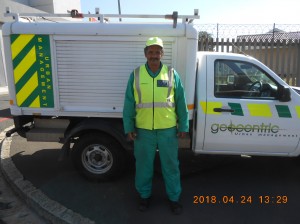 Anything from sweeping streets and confiscating trolleys, to de-weeding sidewalks, repairing uneven surfaces, assisting the public, clearing up illegal dumping, dealing with bin-scratching and cleaning drains for winter are some of the tasks that are all in a day’s work for the Salt River Business Improvement District (SRBID) team.
Anything from sweeping streets and confiscating trolleys, to de-weeding sidewalks, repairing uneven surfaces, assisting the public, clearing up illegal dumping, dealing with bin-scratching and cleaning drains for winter are some of the tasks that are all in a day’s work for the Salt River Business Improvement District (SRBID) team.
Special mention can be made of Nazeem Davids, who is an exceptionally dedicated member of the team (see photo).
Here are some of the team’s most recent projects:
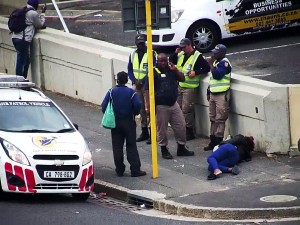 |
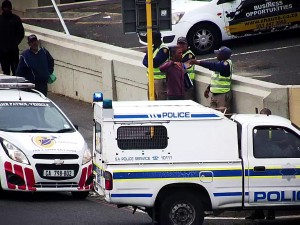 |
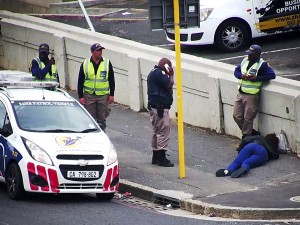 |
In an unrelated incident at a different time, Public Safety Officer Louw informed his control room about a lady who had collapsed at the Biscuit Mill entrance. Although it was inside the Biscuit Mill premises, the officer still felt obliged to lend a hand and requested help from his control room. The public safety officer stayed by the lady’s side until medical help arrived. The lady’s family was grateful for the assistance.
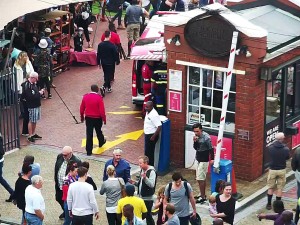 |
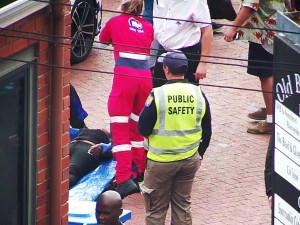 |
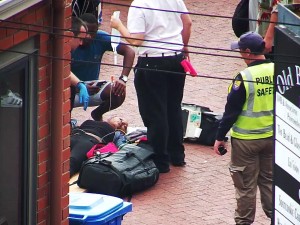 |
Illegal dumping is a challenge that we overcome on a daily basis in the area, says BID Manager Andre Geslin. One of the most recent sites that was cleaned up by the maintenance and cleaning team, was on James Street. Another incident of illegal dumping occurred on the corner of Briar Street and Durham Avenue.
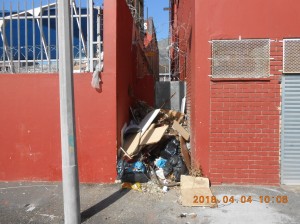 |
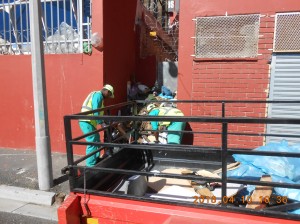 |
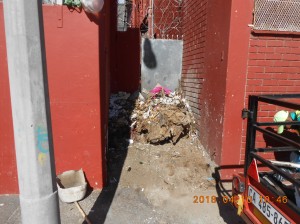 |
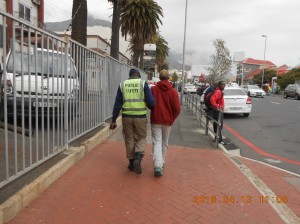 |
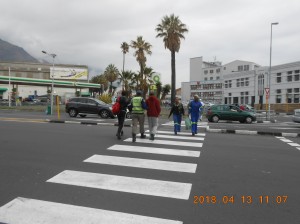 |
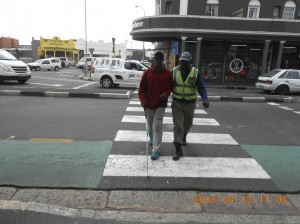 |
After a project of de-weeding in Stowe Street was done by the maintenance and cleaning team, the area looked fresh and well maintained again.
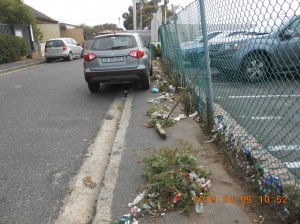 |
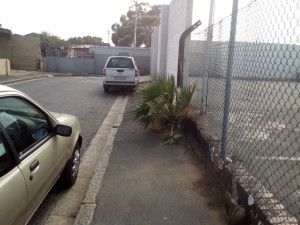 |
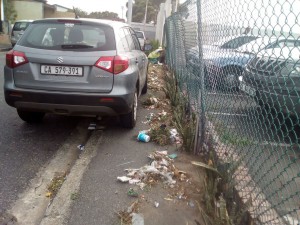 |
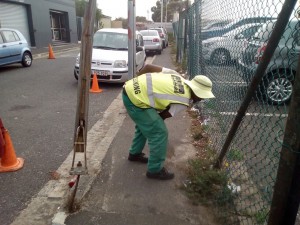 |
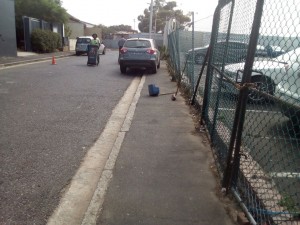 |
|
Our winter preparation program includes cleaning storm water drains to ensure free flowing of water. Here the SRBID maintenance and cleaning team cleaned up a blocked storm water drain in Albert Road.
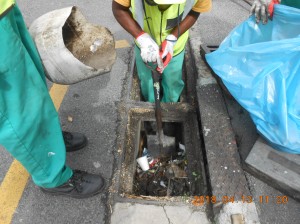 |
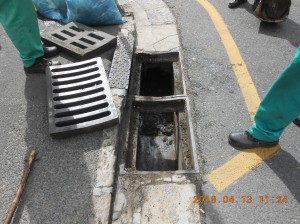 |
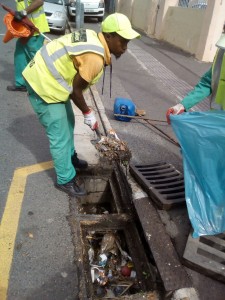 |
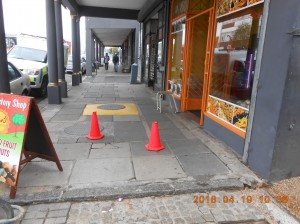 |
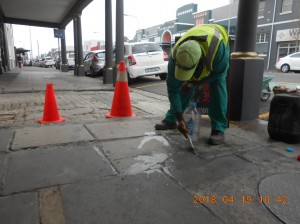 |
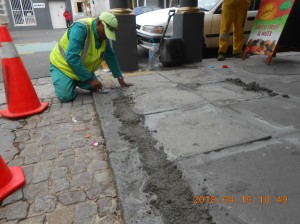 |
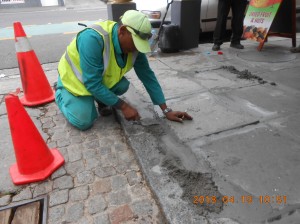 |
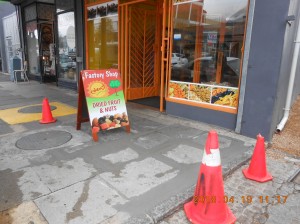 |
|
|
|
|
CITY OF CAPE TOWN
20 MARCH 2018
STATEMENT BY THE CITY’S EXECUTIVE DEPUTY MAYOR, ALDERMAN IAN NEILSON
Let’s keep our water-saving focus, Team Cape Town
As at Monday 19 March 2018, our collective consumption over the past week was 565 million litres of water per day. Unfortunately, usage has increased by 54 million litres per day from last week’s record low of 511 million litres per day. Nevertheless, we are confident that our water users will again shatter water use records in the weeks ahead. Read more below:
Our dam levels have shown only a slight decline of 0,3% to 22,7% . This is the lowest decline in dam levels this year to date. This can likely be attributed to somewhat lower evaporation rates and small amounts of rainfall, especially in the Steenbras Dam area.
We will continue to monitor the water usage trend to see whether the increase in consumption is a once-off occurrence or whether there is another underlying reason that would need to be addressed.
Level 6B water restrictions are still in place. Water pressure reduction remains in place, water management devices continue to be installed on the connections of high water users and the bills based on 6B tariffs are reaching consumers. It is essential that we all continue to save water.
All water users are reminded that the City is still required by the National Government to reduce water usage to 450 million litres per day in order to stretch the available water supplies through the rest of the year. This equates to a reduction of 45% from normal usage. We are currently hovering at just below a 40% reduction. A sustained collective push is now required to reduce consumption by just 5% in order to achieve our target.
We will continue to drive our initiatives to reduce water consumption. This will include advanced pressure management, the installation of water management devices at the properties of high water users and proactively implementing advanced water restrictions and associated tariffs to encourage behaviour change.
If all Capetonians join us by keeping their consumption down to 50 litres of water a day, or less, we will avoid having to take more drastic actions.
Please visit www.capetown.gov.za/thinkwater for all water-related information, including Level 6B restrictions and FAQs about Day Zero as well as tips to lower usage even further.
“As Geocentric we are very proud to launch our new mobile phone reporting application,” said Gene Lohrentz of the urban management company recently. “This is another way in which we are enabling our CID business and property owners to interact with their City Improvement District Management.
“We want our CID contributors to become part of our family by interacting with us about issues they might encounter. The mobile application makes that possible on the devices most people have with them every day.”
The Geocentric app allows users to easily report issues in the City Improvement Districts managed by Geocentric Urban Management based in South Africa. Currently, the areas covered by this Application include Beaconvale Industrial Area, Elsies River Industrial, Glosderry, Maitland, Salt River, Somerset West CBD, Stikland Industrial, Strand CBD and the Tygervalley CBD.
With this application, users can report urban defects, crime incidents, public safety issues and general comments. “We will acknowledge your report and provide you with feedback throughout the process. We will also send you ‘Alerts’ of problems in your CID area, such as water leaks or power outages and we can even send crime alerts and safety tips to your mobile phone.
The Geocentric Reporting Application is Free of Charge
Simply install it and register as a user when using it for the first time. If you need any help, please contact support@geocentric.co.za
Let’s get started!
The Geocentric Urban Management Trolley Project was initiated in 2017.
The aim of the project is to provide urban cleaning and maintenance teams with a platform to improve their daily tasks, assist with moving of equipment and tools and enable recycling while performing their tasks.
A few design considerations were introduced into the design of the trolley including
To achieve some of these design principles, Geocentric looked at simple solutions from other designs, for example, the stair-climbing suitcases used by so many travellers. By scaling up the design for the urban management trolleys, we could produce a sidewalk and pavement climbing trolley where the urban management worker needs minimum effort to get onto and off pavements to perform their duties.
(See photos of step 1, 2 and 3 illustrating this concept.)
The trolleys were also designed to be pushed from any side with key tools located in the middle so that it is in fact easy to use it for a two-man team operation. On each side of the trolley a plastic tool box allows storage for small tools.
Recyclables like tin cans, glass and plastic bottles are collected by the urban management workers throughout the day as they clean the streets and public spaces and at the end of each day they separate the items into baskets whereafter Geocentric recycles the items.
This is another way in which we make CID operations more sustainable and environmentally friendly as we prevent a vast amount of waste from simply going to landfills.
Geocentric have rolled out these trollies in the Elsies River and Beaconvale City Improvement Districts and plan to roll them out to all the other CIDs under Geocentric management through the course of 2018.
The Salt River BID plays a vital role in the efforts by all Capetonians to save water.
Quite often our patrol vehicles detect the leaking water meters and burst pipes in the small hours of the morning and through the SRBID Control Room alert the City of Cape Town as soon as possible. This results in a quick reaction from maintenance crews but more importantly, vast amounts of wasted water are stopped from leaking away into the stormwater system because the City can act swiftly to shut off water supply and repairs can commence.
Often the only evidence of this vital work is the sandy patch in the road from the work done while the rest of us were fast asleep.
Picture: City Crews at work on a bust pipe with City maintenance team attending to the problem:
Thanks to the commitment of all who are involved in the Salt River Improvement District drive, much needed progress is being made in various ways.
Accompanying images tell the story of how problems like security issues, illegal dumping and the confiscation of stolen trolleys and wheelie-bins are successfully addressed by the teams.
The Public Safety issues that are addressed during the day-to-day activities, include problems related to the following:
The Cleaning issues include:
On the Urban management side, the SRBID Management continues to log all urban and infrastructure defects as C3 notifications with the City of Cape Town for correction. The accompanying photos show the result of these actions as the City and other partners address issues.
Photographs:
Demonstrating the variety of activities that the ERCID engages in, sometimes in collaboration with teams of the CCT and law enforcement agencies.

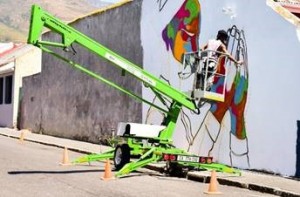 South Africa will experience its second annual International Public Art Festival (IPAF), a 9-day festival to be held from 10 to 19 February 2018, in the community of Salt River.
South Africa will experience its second annual International Public Art Festival (IPAF), a 9-day festival to be held from 10 to 19 February 2018, in the community of Salt River.
This second festival promises to yet again bring together an eclectic mix of artists from different continents, in one space for nine days, to paint beautiful, large murals for the public to observe and engage with the local and international artists. Each artist will be given a wall space in Salt River as they interpret this year’s theme of “Nature Doesn’t Need Us: We Need Nature.” Between 2017 and 2018, 80 murals would have been painted in Salt River.
The festival, is just one of BAZ-ART’s mission to use art as a fun outlet for social change, one community at a time and draw art lovers out into the streets. Attendance is free, but private guided tours by local certified tour guides and spray paint workshop hosted by our renowned SA artists can be bought from Webticket.
This year Baz-Art is partnering with IPAF Mexico and IPAF Canada. Thanks to the strong partnership with the respective embassies and the city of Cape Town, IPAF 2018 will see artists from a variety of genres and places coming from as far as Flanders, France, Ukraine, Finland, alongside a dozen local artists from South Africa.
Asked about why Baz-Art brought this annual event to Cape Town, organizer Alexandre Tilmans said, “Public festivals act as a creative vessel to enhance artists and make the communities stand strong together. This festival showcases the rich history, creativity, skills, diversity and style of South Africa’s public artists, as a result, we act as a platform for painting murals and billboards providing commissioned work to South African artists at a local and international level.” concludes Alexandre. The full artist line up can be consulted on Baz-Art and IPAF websites.
The International Public Art Festival in Salt River 2018 falls within the art month in Cape Town, with events such as the Cape Town Art Fair and That Art Fair, the week promises to explore various art forms, for a completely explosive experience in art immersion.
Tickets to the SPRAY PAINT workshops and GUIDED TOURS will be on sale from Webticket; keep an eye on Baz-Art’s Facebook page for updates.
During a recent speech delivered at the Atlantis Aquifer, Cape Town Mayor Patricia de Lille thanked Capetonians who had been making efforts to cut their water usage, saying that about half of water users had restricted their daily usage to 87 litres per day.
But added that this was not enough. “We need each and every Capetonian and business on board as a partner on this journey,” she said.
“We are in an unprecedented drought crisis and this phase is critical because if the City and residents don’t do enough together and simultaneously, we will run out of water.”
She said the City was doing everything in its power to ensure additional supply, including finding and hiring the country’s best team of experts who were working 80-hour weeks with the metro to ensure that additional water could be brought ‘online’.
The Atlantis plant was one of several sites for alternative water sources which form part of the ‘Water Resilience Plan’.
The City of Cape Town had recently refurbished many of the boreholes around this West Coast area to increase the production of this plant. She pointed out that these boreholes formed a part of the City’s unique Artificially Recharged Aquifer System and said a lot of work had gone into ensuring an increase in the volume of water from this aquifer system.
Prior this work, the system had been producing around four million litres of water per day. “We have now increased the yield from this aquifer by an additional five million litres per day.”
The water is serving homes and industrial businesses in Atlantis, Mamre and Pella on the outskirts of the West Coast, which is quite a vast area. “So the additional capacity will be welcomed,” the Mayor said.
“This work demonstrates our commitment to addressing this current drought crisis. I repeat my commitment that I will not allow a well-run city to run out of water.”
She added that she had made it clear when the site of a new desalination plant with the V&A Waterfront had been announced: “we have a plan and we will supply water, but we need Team Cape Town to assist us”.
In the meantime, the City of Cape Town announced that Level 6 water restrictions will be implemented from 1 January 2018, which means that households using more than 10,500 litres per month could face fines and penalties. A proposal for a drought charge of between R45 and R2 800, depending on the value of the property, has also been tabled.
Take a look at these shocking images of the Theewaterskloof Dam looking more like a desert than a body of water: